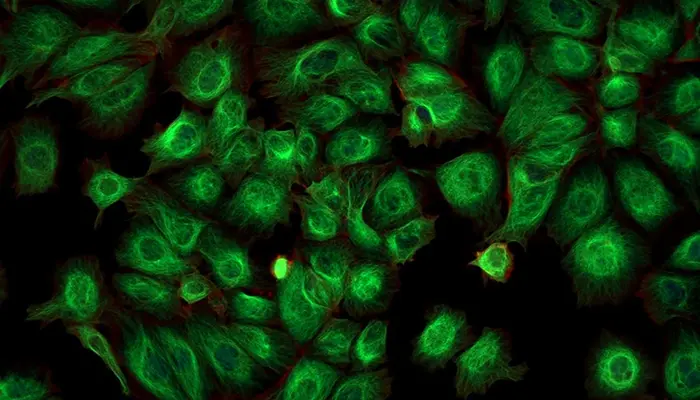
The human body relies on cells that work together to maintain health and fight diseases. One crucial type of cell is white blood cells, which are key players in the immune system. Among these, specialized white blood cells known as cytotoxic T cells and natural killer cells specifically target and destroy cancer cells. Conversely, some white blood cells, such as myeloid-derived suppressor cells, can promote cancer growth. These are referred to as cancer-promoting cells. The balance between cancer-killing and cancer-promoting cells within the body can significantly influence the immune system’s ability to combat cancer. When the body has more cancer-killing cells than cancer-promoting cells in the tumor environment, it enhances the chances of fighting cancer effectively.
Exercise and Its Role in Cancer Cell Destruction
Previous research has established that exercise can help eliminate cancer cells. This is largely due to an increase in the activity of cytotoxic T cells and natural killer cells. For example, a study found that just 10 minutes of light to moderate exercise significantly boosted cancer-killing cells in newly diagnosed breast cancer patients. However, these studies did not explore the effects of longer exercise durations on cancer-promoting cells.
To address this gap, a group of researchers in Finland conducted a study focusing on how 30 minutes of exercise influences the balance of cancer-killing versus cancer-promoting white blood cells in breast cancer patients. They enrolled 20 newly diagnosed breast cancer patients who had not yet begun treatment. The patients pedaled on a stationary bicycle equipped with an exercise monitor for 30 minutes. Importantly, they could adjust the speed and difficulty to ensure they could sustain the activity for the full duration.
Read: Israeli Strikes on Damascus Kill 3 Civilians, Including TV Anchor
Blood Sample Analysis and Findings
Throughout the study, researchers collected blood samples from patients at various time points: before exercise, at 15 minutes, during the exercise, and at 30 and 60 minutes post-exercise. They utilized flow cytometry, a technique that employs light to identify different cell types, to analyze the samples. This method allowed them to count the various white blood cells present in the patients’ blood at different stages of the exercise.
The results revealed significant changes in the types and proportions of white blood cells during the exercise. After just 15 minutes of pedaling, researchers noted an average increase of 15% to 55% in various cancer-killing white blood cells. Specifically, the number of cytotoxic T cells rose by 36%, while natural killer cells increased by an astonishing 154%. This elevated level of cancer-killing cells persisted after the full 30 minutes of exercise.
Additionally, the researchers observed a reduction in cancer-promoting myeloid-derived suppressor cells. These cells decreased from 44% at rest to 32% after 15 minutes of exercise, and slightly to 34% after 30 minutes. This shift suggests that exercise can favorably alter the immune environment within the body.
Understanding Plasma Volume and Other Changes
The study also examined how exercise affects plasma volume, the liquid component of blood. The researchers found a 16% decrease in plasma volume after 15 minutes of exercise, which stabilized after 30 minutes. Interestingly, after the exercise, the plasma volume was approximately 2% higher than pre-exercise levels at the 30-minute mark and 5% higher at the 60-minute mark.
To determine the statistical significance of these changes, researchers calculated a p-value. They found that the increase in plasma volume after 60 minutes was significant, while the increase after 30 minutes was not. Furthermore, the study recorded significant increases in patients’ blood pressure, heart rates, and lactate levels during exercise compared to rest. These trends suggest that higher blood pressure and heart rates may enhance the immune response, leading to an increased production of cancer-killing white blood cells while reducing cancer-promoting cells.
Future Directions
The researchers concluded that just 30 minutes of exercise can activate immune cells in the body, providing a potential benefit in the fight against breast cancer. However, they emphasized the need for further research to understand how exercise influences immune responses in cancer patients. Future studies should also investigate whether exercise has a similar impact on immune cells in individuals without cancer.
Exercise emerges as a powerful ally in the battle against cancer. By promoting the proliferation of cancer-fighting white blood cells and diminishing those that support tumor growth, exercise offers a promising avenue for enhancing immune function in cancer patients.
Follow us on Google News, Instagram, YouTube, Facebook,Whats App, and TikTok for latest updates












